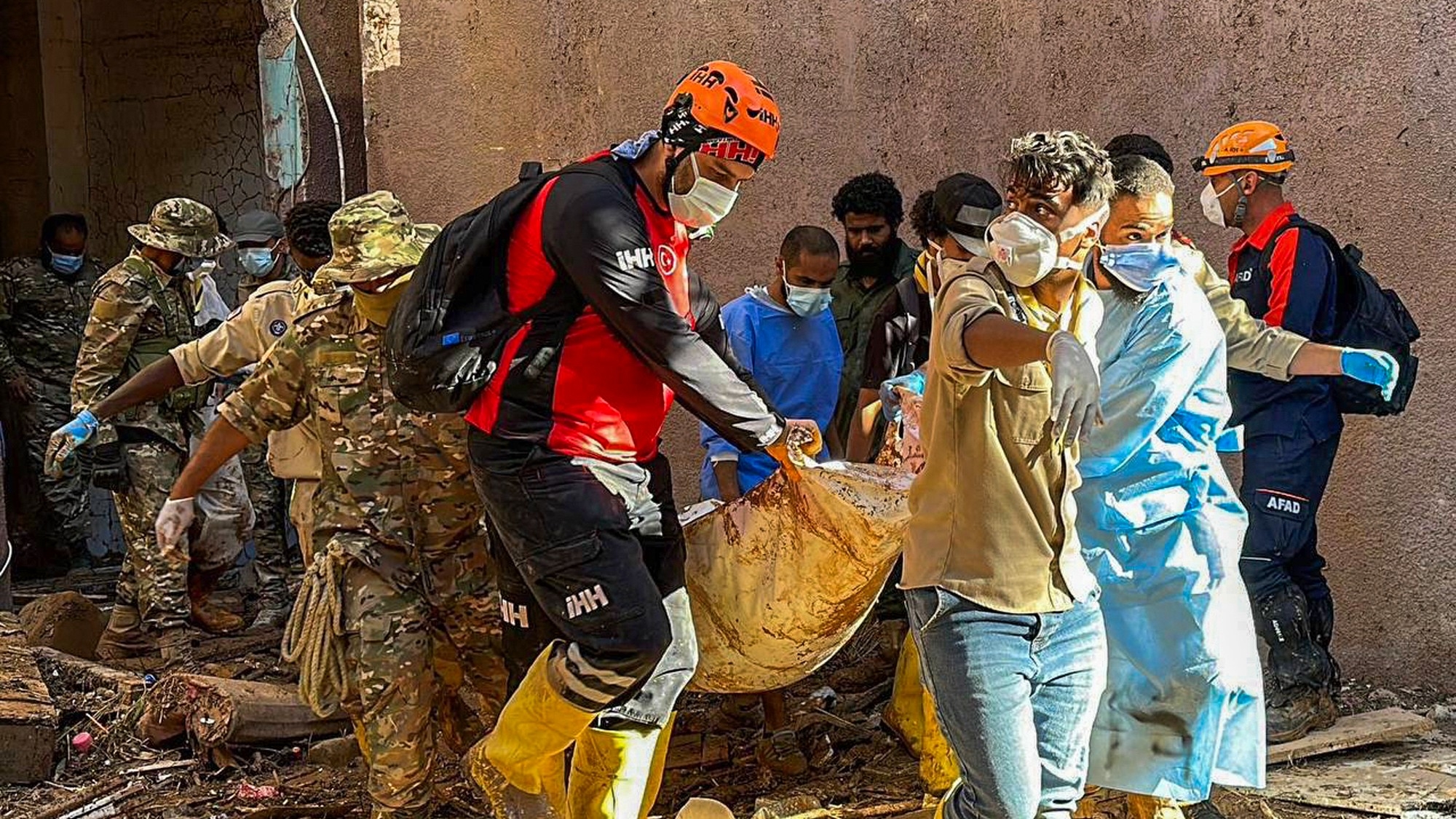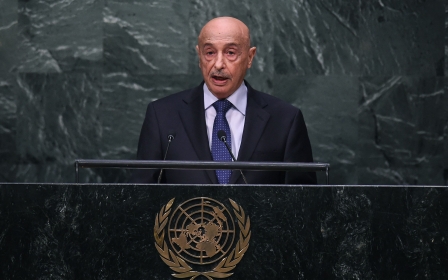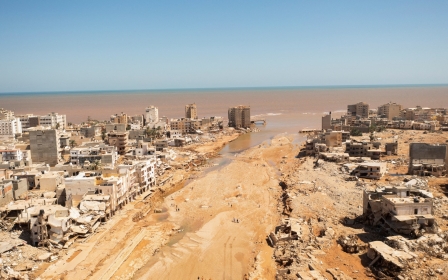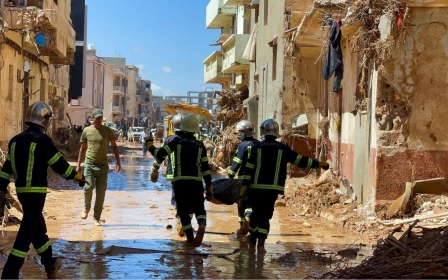Libya floods: UN says recovering bodies now the priority for emergency teams

Recovery of bodies and body bags is now the priority following the devastating Libya floods, according to an alert sent out by the UN Office for the Coordination of Humanitarian Affairs (OCHA).
OCHA Emergency Response Section said on Friday morning that the primary need in Libya was "teams specialised in body recovery" and "body bags/human remains pouches".
The alert was sent on the online portal coordinating the international response in Libya, as a request for assistance from the international community.
It suggests that search and rescue efforts may have moved on from the attempt to find survivors, more than four days after Storm Daniel ravaged Libya's east.
Middle East Eye has reached out to OCHA for comment.
Libya's Red Crescent said that the death toll in the worst-hit city of Derna has increased rapidly to 11,300.
The tragedy began on Sunday night when two dams collapsed following a tropical storm that unleashed floods down the Wadi Derna, a river running from eastern Libya's Green Mountains through the city and into the sea.
Entire neighbourhoods were swept away and around 10,000 people are still missing.
“We actually need teams specialised in recovering bodies,” Abdulmenam al-Ghaithi, mayor of Derna, said on Thursday.
“I fear that the city will be infected with an epidemic due to the large number of bodies under the rubble and in the water.”
Aid groups have started arriving in eastern Libya, bringing with them humanitarian and medical supplies, including body bags.
The International Committee of the Red Cross is set to deliver 5,000 bags, while the Turkish Red Crescent has brought 1,500 bags.
'Don't rush to mass burials'
Libya has been in a state of unrest and instability since 2011 when a Nato-backed uprising toppled longtime ruler Muammar Gaddafi, leaving the country deeply fractured and lacking a strong central government.
The country of seven million is divided between those ruled by an internationally recognised government based in the capital, Tripoli, and a separate administration governing the disaster-hit east.
"We are trying to take DNA samples and pictures of the victims before their burial to help with identification later on," Tarek al-Kharraz, a military official and spokesman for the eastern administration told local reporters.
The World Health Organisation (WHO) and several other agencies called on Libyan authorities not to bury victims in mass graves after the UN found that over 1,000 had been buried as such.
"We urge authorities in communities touched by tragedy to not rush forward with mass burials or mass cremations," said WHO official Kazunobu Kojima on Friday, in a joint statement with the ICRC and the International Federation of the Red Cross and Red Crescent Societies (IFRC).
The statement said burials should occur in well-demarcated and documented individual graves.
"An unnecessary rush to dispose of bodies of those killed in disasters or conflict deprives families of the opportunity to identify and mourn their loved ones while providing no public health benefit," said Gwen Eamer, IFRC’s Senior Officer for Public Health in Emergencies.
"Dignified treatment of the dead requires appropriate time to identify the deceased and mourn and perform funeral rites in accordance with local cultural and social norms".
The statement adds that the belief that dead bodies cause epidemics "is not supported by evidence", and that those killed in natural disasters do not generally pose a health risk.
Middle East Eye propose une couverture et une analyse indépendantes et incomparables du Moyen-Orient, de l’Afrique du Nord et d’autres régions du monde. Pour en savoir plus sur la reprise de ce contenu et les frais qui s’appliquent, veuillez remplir ce formulaire [en anglais]. Pour en savoir plus sur MEE, cliquez ici [en anglais].




